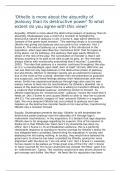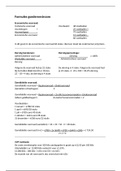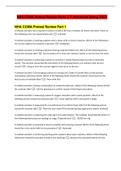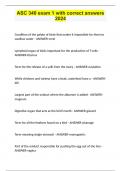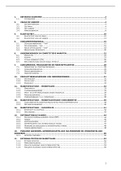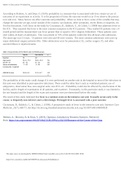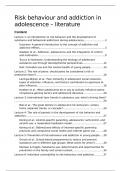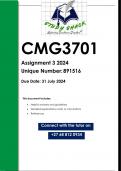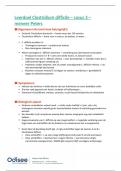Essay
Othello Section B Question- Band 4 Example
- Module
- Aspects of Tragedy
- Institution
- AQA
'Othello is more about the absurdity of jealousy than its destructive power' To what extent do you agree with this view? This question is apart of a past paper for A-level English Literature B Paper 1 Specimen paper/sample paper from 2015. It is in Section B where a student chooses between two ...
[Show more]
